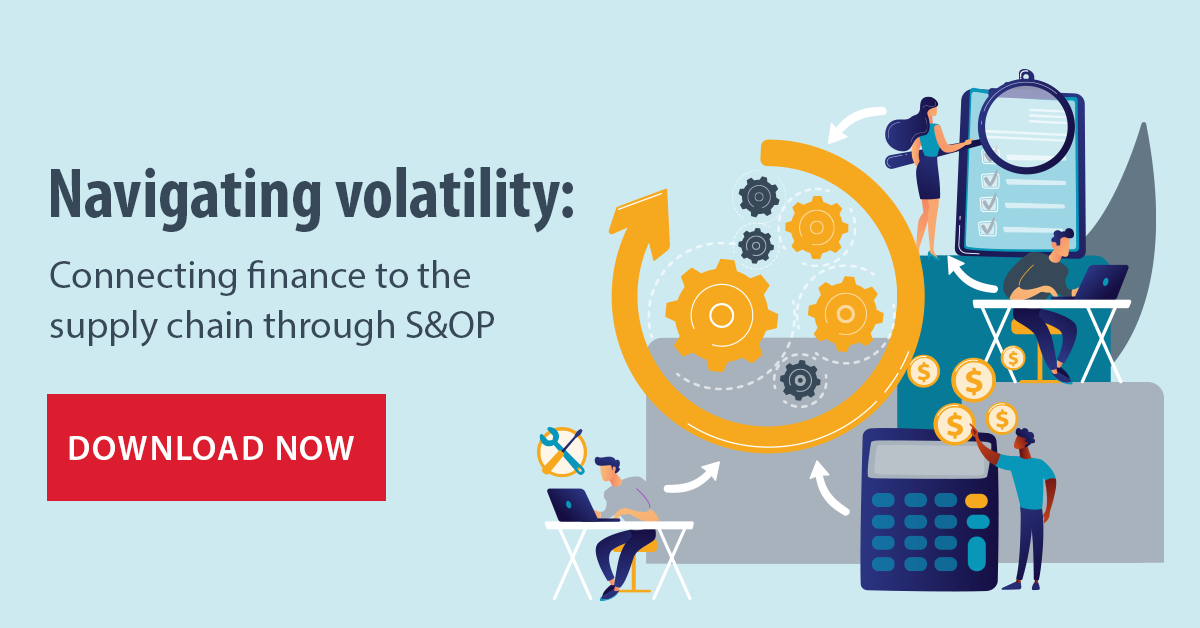
Quarterly earnings announcements aren’t about what has already happened — by the time a company announces what it has done, there have already been countless whispers in the market. The real reason thousands of financial analysts tune in to these calls is to hear a company’s expectations for the future. This year, there was a clear trend across all companies: Chief financial officers are paying attention to supply chain capabilities.
Quotes from earnings calls in July and August 2020, all from CFOs, demonstrate this:
- “Our outlook also assumes minimal disruption through extended supply chain over the course of the fiscal year.” (Clorox Co (CLX) Q4 2020 Earnings Call Transcript)
- “There is also a risk of supply chain disruption of our operations or those of our suppliers, being shut down due to local mandates.” (Procter & Gamble Co (PG) Q4 2020 Earnings Call Transcript)
- “…as we think about increasing capacity, we're seeing our base business and Diagnostics come back as well. So it's going to be a challenge in balancing on the two products.” (Hologic Inc (HOLX) Q3 2020 Earnings Call Transcript)
These are just a sample of some of the many comments from CFOs in recent calls.
Disruption changes CFO priorities
While CFOs are prioritizing supply chain now, it was not the case just a few months ago. In December 2019, The CFO Survey, led by Duke University’s Fuqua School of Business, contained a list of the top concerns among global CFOs. The five most consistent concerns across regions included economic uncertainty, government policies, difficulty attracting/retaining qualified employees, weak demand for products/services and access to capital.
At the time, these were generally macro-level concerns that management teams had limited influence over but were tasked with preparing for anyway. For example, macroeconomic concerns about a looming global recession were evident, further complicated by uncertainties about governmental policies that had the potential to either stifle or encourage business.
Recently, concerns and priorities have dramatically shifted. The Duke Fuqua CFO survey showed that in the US alone, the portion of leaders concerned about demand softening grew considerably, from 6 percent in December to 24 percent in June. When they asked CFOs to share their top concerns in an open-text response, supply chain made the list. Deloitte’s Spring 2020 European CFO survey confirmed the shift to more operational priorities and more conservative approaches as European CFOs were more inclined to reduce spending, put off investments, and increase rainy day reserves.
Supply chain excellence is a requirement for business
The omission of supply chain in the list of common CFO priorities in December 2019 was not because it lacked importance. Rather, at times of business as usual, supply chain costs are estimated to be 10-20 percent of revenues, so its performance was a critical driver of overall business success. However, that level of significance also makes supply chain an easy target when disruptions hit and leadership perspectives shift inward and become more conservative.
With that mind, Sanford Cockrell III, the global leader of the CFO Program for Deloitte Touche Tohmatsu Limited (DTTL), says, “One of the most important actions the CFO can take is to ensure that supply chain and other key business function leaders are integrated in the strategic decision-making process.”
By establishing that alignment with the CFO, supply chain can leverage its position as the lynchpin that connects the entire business to drive broader improvements. As such, supply chain agility and efficiency become key points of competitive differentiation. This is especially important as supply chains by nature observe circumstances in real-time and evaluate what is most impactful for the business.
When backed by the confidence of CFOs and armed with the right information and platforms to make fast, confident decisions, supply chains lead through action at a moment’s notice in times of stability or disruption.
Learn more about how CFOs are aligning the supply chain with business objectives in the eBook, Navigating volatility: Connecting finance to the supply chain through S&OP.






